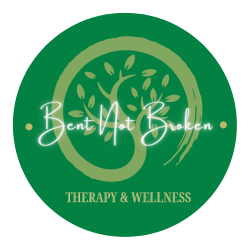Post-Traumatic Stress Disorder (PTSD) is a challenging and complex mental health condition that not only affects the individual who experiences trauma but also ripples through their relationships with loved ones. When a family member or partner is living with PTSD, it can strain the bonds and create a significant emotional toll for everyone involved. However, the good news is that professional PTSD counseling for couples and families can be a vital lifeline to help heal and rebuild together. In this blog, we’ll explore the importance of seeking counseling as a family unit when PTSD is present and how it can lead to positive outcomes for all.
Understanding PTSD and its Impact
PTSD is a mental health condition that can develop after experiencing or witnessing a traumatic event. This trauma can range from military combat and natural disasters to physical assault or accidents. The symptoms of PTSD can vary, but often include:
- Flashbacks: Vivid, distressing memories of the traumatic event.
- Nightmares: Repeated, distressing dreams related to the trauma.
- Avoidance: Avoiding reminders of the traumatic event, including people, places, or situations.
- Negative Changes in Thinking and Mood: Feelings of guilt, detachment, or a persistent negative outlook
- Hyperarousal: Constantly feeling on edge, with difficulty sleeping and concentrating.
The Impact on Relationships
When a loved one is living with PTSD, it can have profound effects on the dynamics of family and couple relationships.
- Communication Breakdown: PTSD can make it challenging for individuals to express their feelings and needs, leading to misunderstandings and frustration.
- Emotional Distancing: Those with PTSD may emotionally withdraw, making it difficult for family members and partners to connect on an emotional level.
- Increased Stress: Coping with the symptoms of PTSD can lead to increased stress levels for everyone involved, which can strain the entire family unit.
- Relationship Conflicts: The strain of living with PTSD can lead to arguments and conflicts within the family, causing further distress.
The Role of PTSD Counseling for Couples and Families
PTSD counseling for couples and families is a specialized form of therapy that focuses on addressing the unique challenges that arise when a family member or partner is living with PTSD. Here are some ways in which counseling can be beneficial:
- Education: Counselors can provide education about PTSD, helping family members and partners better understand the condition and its effects.
- Communication Skills: Counseling sessions can teach effective communication skills, allowing family members to express their feelings and concerns while also providing a safe space for the individual with PTSD to share their experiences.
- Coping Strategies: Counselors can help families develop coping strategies to manage the emotional challenges that arise when living with PTSD.
- Family Support: Counseling can create a supportive environment where family members can come together to provide emotional support to the individual with PTSD.
- Rebuilding Trust: In cases where trust has been damaged due to PTSD-related behaviors, counseling can help families work towards rebuilding trust and strengthening their bonds.
- Stress Management: Learning stress management techniques can be crucial for both the individual with PTSD and their loved ones to reduce overall stress levels.
- Setting Realistic Expectations: Counseling can help family members and partners set realistic expectations for their loved one’s recovery process, which can reduce frustration and disappointment.
Seeking Professional Help
It’s important to emphasize that PTSD counseling for couples and families should be facilitated by qualified mental health professionals who have experience in trauma therapy. While support from friends and family is valuable, professional guidance can provide the necessary structure and expertise to address the complexities of PTSD.
When considering PTSD counseling, it’s essential to:
- Choose a Qualified Therapist: Look for a therapist who specializes in trauma and PTSD counseling and has experience working with couples and families.
- Open and Honest Communication: Encourage open and honest communication within the family about the decision to seek counseling. It’s essential that everyone involved is willing to participate and commit to the process.
- Be Patient: Healing takes time. Progress may be slow, but with the right support and treatment, positive changes are possible.
- Respect Boundaries: Recognize that individuals with PTSD may need space at times. It’s important to respect their boundaries while also offering support.
- Self-Care: Encourage self-care for all family members. Managing stress and taking care of one’s own mental health is crucial when supporting a loved one with PTSD.
Conclusion
PTSD can be a challenging journey for both the individual experiencing it and their family members or partners. However, PTSD counseling for couples and families can provide a path to healing and rebuilding relationships. It offers education, communication skills, coping strategies, and a supportive environment for all involved.
Remember, seeking professional help is essential when dealing with PTSD. A qualified therapist can guide the family through the process, helping them understand the condition, improve communication, and work together towards a healthier and more connected family unit. By seeking counseling as a family, you’re taking a significant step toward healing and creating a brighter future together.
Bent Not Broken Therapy and Wellness https://bentnotbrokentherapy.com/
